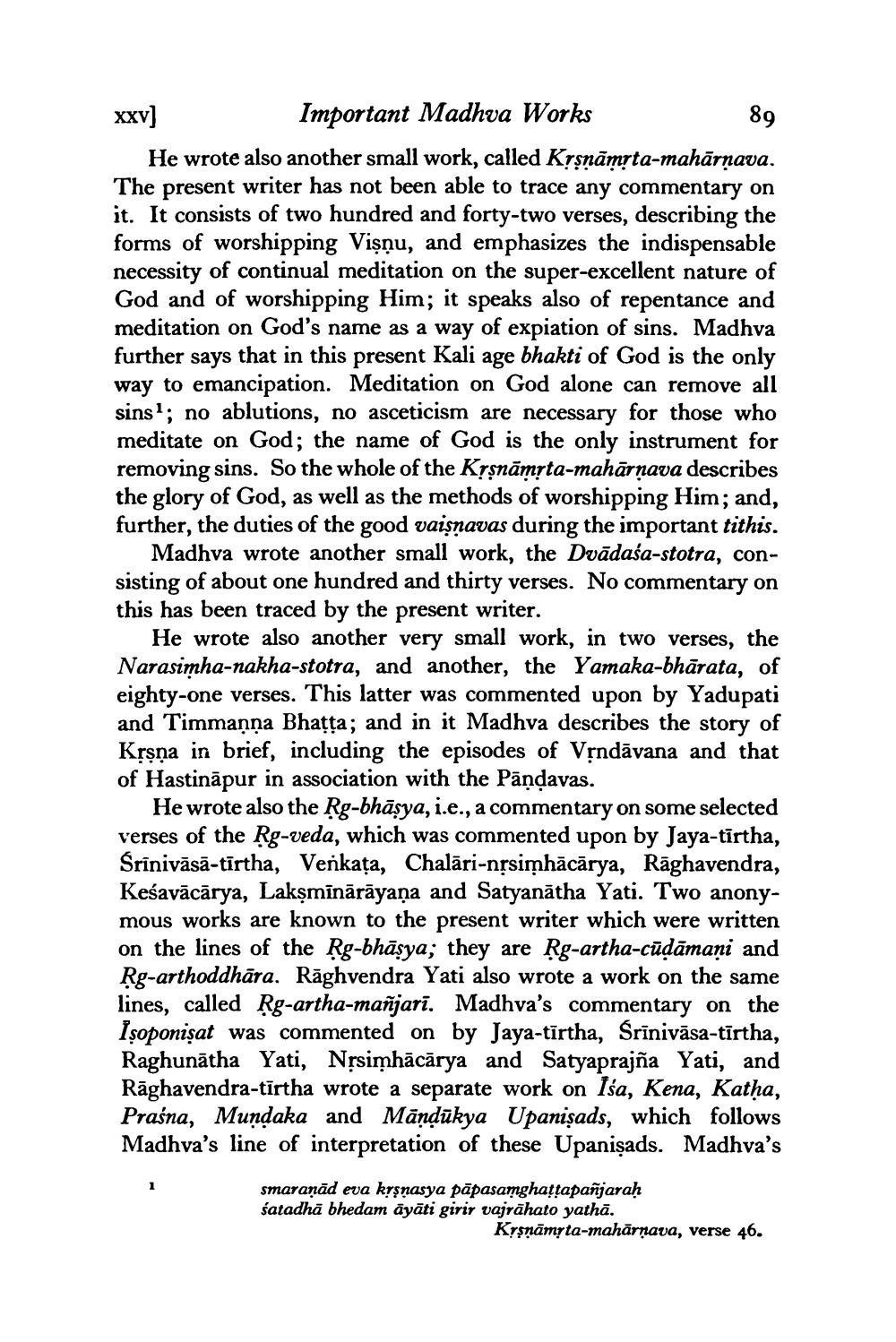________________
XXV] Important Madhva Works
89 He wrote also another small work, called Krsnāmrta-mahārnava. The present writer has not been able to trace any commentary on it. It consists of two hundred and forty-two verses, describing the forms of worshipping Vişņu, and emphasizes the indispensable necessity of continual meditation on the super-excellent nature of God and of worshipping Him; it speaks also of repentance and meditation on God's name as a way of expiation of sins. Madhva further says that in this present Kali age bhakti of God is the only way to emancipation. Meditation on God alone can remove all sins?; no ablutions, no asceticism are necessary for those who meditate on God; the name of God is the only instrument for removing sins. So the whole of the Krsnāmsta-mahārnava describes the glory of God, as well as the methods of worshipping Him; and, further, the duties of the good vaişnavas during the important tithis.
Madhva wrote another small work, the Dvādaśa-stotra, consisting of about one hundred and thirty verses. No commentary on this has been traced by the present writer.
He wrote also another very small work, in two verses, the Narasimha-nakha-stotra, and another, the Yamaka-bhārata, of eighty-one verses. This latter was commented upon by Yadupati and Timmanna Bhatta; and in it Madhva describes the story of Krsna in brief, including the episodes of Vạndāvana and that of Hastināpur in association with the Pandavas.
He wrote also the æg-bhāsya, i.e., a commentary on some selected verses of the Rg-veda, which was commented upon by Jaya-tīrtha, Srinivāsā-tīrtha, Venkata, Chalāri-nțsimhācārya, Rāghavendra, Keśavācārya, Lakşmīnārāyaṇa and Satyanātha Yati. Two anonymous works are known to the present writer which were written on the lines of the Ķg-bhāsya; they are Ķg-artha-cūdāmaņi and Rg-arthoddhāra. Rāghvendra Yati also wrote a work on the same lines, called Rg-artha-mañjari. Madhva's commentary on the Isoponişat was commented on by Jaya-tīrtha, Srinivasa-tīrtha, Raghunātha Yati, Nșsimhācārya and Satyaprajña Yati, and Rāghavendra-tirtha wrote a separate work on tsa, Kena, Katha, Prašna, Mundaka and Māndūkya Upanişads, which follows Madhva's line of interpretation of these Upanişads. Madhva's
smaranād eva krşnasya papasamghattapanjaraḥ satadhā bhedam āyāti girir vajrähato yathā.
Kysnāmyta-mahārnava, verse 46.




